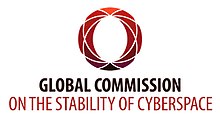
Internet governance consists of a system of laws, rules, policies and practices that dictate how its board members manage and oversee the affairs of any internet related-regulatory body. This article describes how the Internet was and is currently governed, some inherent controversies, and ongoing debates regarding how and why the Internet should or should not be governed in future.

Packet Clearing House (PCH) is the international organization responsible for providing operational support and security to critical Internet infrastructure, including Internet exchange points and the core of the Domain Name System. The organization also works in the areas of cybersecurity coordination, regulatory policy and Internet governance.

Bill Woodcock is the executive director of Packet Clearing House, the international organization responsible for providing operational support and security to critical Internet infrastructure, including Internet exchange points and the core of the domain name system; the chairman of the Foundation Council of Quad9; the president of WoodyNet; and the CEO of EcoTruc and EcoRace, companies developing electric vehicle technology for work and motorsport. Bill founded one of the earliest Internet service providers, and is best known for his 1989 development of the anycast routing technique that is now ubiquitous in Internet content distribution networks and the domain name system.

Nathaniel C. Fick is an American diplomat, technology executive, author, and former United States Marine Corps officer. He was the CEO of cybersecurity software company Endgame, Inc., then worked for Elastic NV after it acquired Endgame. He was an Operating Partner at Bessemer Venture Partners. In 2022, he was selected to lead the U.S. State Department's Bureau for Cyberspace and Digital Policy.

Jeff Moss, also known as Dark Tangent, is an American hacker, computer and internet security expert who founded the Black Hat and DEF CON computer security conferences.

Marina Kaljurand is an Estonian politician and Member of the European Parliament. Kaljurand served as Minister of Foreign Affairs in Taavi Rõivas' second cabinet as an independent. Earlier, she served as the Ambassador of Estonia to the United States, Russia, Mexico, Canada, Kazakhstan, and Israel.
Internet infrastructure refers to the physical systems that provide internet communication. It include networking cables, cellular towers, servers, internet exchange points, data centers, and individual computers.
Melissa Hathaway is a leading expert in cyberspace policy and cybersecurity. She served under two U.S. presidential administrations from 2007 to 2009, including more than 8 months at the White House, spearheading the Cyberspace Policy Review for President Barack Obama after leading the Comprehensive National Cybersecurity Initiative (CNCI) for President George W. Bush. She is President of Hathaway Global Strategies LLC, a Senior Fellow and member of the Board of Regents at Potomac Institute for Policy Studies, a Distinguished Fellow at the Centre for International Governance Innovation in Canada, and a non-resident Research Fellow at the Kosciuszko Institute in Poland. She was previously a Senior Adviser at Harvard Kennedy School's Belfer Center.

Maria Renske "Marietje" Schaake is a Dutch politician who served as Member of the European Parliament (MEP) from the Netherlands between 2009 and 2019. She is a member of Democrats 66, part of the Alliance of Liberals and Democrats for Europe Party.
Digital supply chain security refers to efforts to enhance cyber security within the supply chain. It is a subset of supply chain security and is focused on the management of cyber security requirements for information technology systems, software and networks, which are driven by threats such as cyber-terrorism, malware, data theft and the advanced persistent threat (APT). Typical supply chain cyber security activities for minimizing risks include buying only from trusted vendors, disconnecting critical machines from outside networks, and educating users on the threats and protective measures they can take.
The 2011 U.S. Department of Defense Strategy for Operating in Cyberspace is a formal assessment of the challenges and opportunities inherent in increasing reliance on cyberspace for military, intelligence, and business operations. Although the complete document is classified and 40 pages long, this 19 page summary was released in July 2011 and explores the strategic context of cyberspace before describing five “strategic initiatives” to set a strategic approach for DoDʼs cyber mission.

Gabriel "Gabi" Siboni is a colonel in the Israel Defense Forces Reserve service, and a senior research fellow and the director of the Military and Strategic Affairs and Cyber Security programs at the Institute for National Security Studies. Additionally, he serves as editor of the tri-yearly published, Military and Strategic Affairs academic journal at INSS. Siboni is a senior expert on national security, military strategy and operations, military technology, cyber warfare, and force buildup. Siboni is an Associate Professor, working specifically in the management of Cyber Security and a part-time lecturer at the Francisco de Vitoria University in Madrid

In internet governance, network sovereignty, also called digital sovereignty or cyber sovereignty, is the effort of a governing entity, such as a state, to create boundaries on a network and then exert a form of control, often in the form of law enforcement over such boundaries.
The London Process is a series of multistakeholder meetings held biennially since 2011 under the name Global Conference on Cyberspace or GCCS. In each GCCS meeting, governments, the private sector and civil society gather to discuss and promote practical cooperation in cyberspace, to enhance cyber capacity building, and to discuss norms for responsible behavior in cyberspace. The London Process was proposed by British Foreign Secretary William Hague at the 2011 Munich Security Conference.
The President's Commission on Enhancing National Cybersecurity is a Presidential Commission formed on April 13, 2016, to develop a plan for protecting cyberspace, and America's economic reliance on it. The commission released its final report in December 2016. The report made recommendations regarding the intertwining roles of the military, government administration and the private sector in providing cyber security. Chairman Donilon said of the report that its coverage "is unusual in the breadth of issues" with which it deals.

The Cybersecurity Law of the People's Republic of China, commonly referred to as the Chinese Cybersecurity Law, was enacted by the National People’s Congress with the aim of increasing data protection, data localization, and cybersecurity ostensibly in the interest of national security. The law is part of a wider series of laws passed by the Chinese government in an effort to strengthen national security legislation. Examples of which since 2014 have included a Law on National Intelligence, the National Security of the People’s Republic of China and laws on counter-terrorism and foreign NGO management, all passed within successive short timeframes of each other.

The Office of the National Cyber Director is an agency in the United States Government statutorily responsible for advising the President of the United States on matters related to cybersecurity. It was established in 2021.
Operational collaboration is a cyber resilience framework that leverages public-private partnerships to reduce the risk of cyber threats and the impact of cyberattacks on United States cyberspace. This operational collaboration framework for cyber is similar to the Federal Emergency Management Agency (FEMA)'s National Preparedness System which is used to coordinate responses to natural disasters, terrorism, chemical and biological events in the physical world.
Tuya Inc. is a Chinese artificial intelligence and Internet of things (IoT) platform as a service (PaaS) provider founded in 2014.

The Forum of Incident Response and Security Teams (FIRST) is a global forum of incident response and security teams. They aim to improve cooperation between security teams on handling major cybersecurity incidents. FIRST is an association of incident response teams with global coverage.












